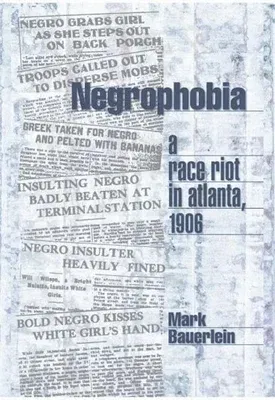Mark Bauerlein
(Author)Negrophobia: A Race Riot in Atlanta, 1906Hardcover, 1 June 2001

Qty
1
Turbo
Ships in 2 - 3 days
In Stock
Free Delivery
Cash on Delivery
15 Days
Free Returns
Secure Checkout

Print Length
304 pages
Language
English
Publisher
Encounter Books
Date Published
1 Jun 2001
ISBN-10
1893554236
ISBN-13
9781893554238
Description
Product Details
Author:
Book Format:
Hardcover
Country of Origin:
US
Date Published:
1 June 2001
Dimensions:
23.72 x
16.18 x
3.23 cm
ISBN-10:
1893554236
ISBN-13:
9781893554238
Language:
English
Location:
San Francisco, CA
Pages:
304
Publisher:
Weight:
703.07 gm